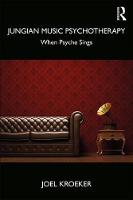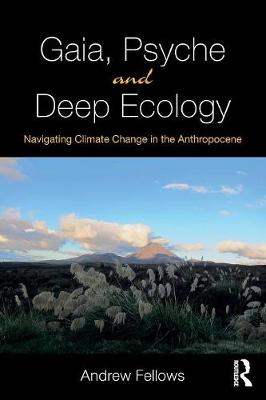Jung and Analytical Psychology Books
The Freud/Jung Letters: Complete Edition
The complete letters between Freud and Jung, discussing colleagues, strategies for advancing psychoanalysis, and their ultimate split.
C. G. Jung in the Humanities: Taking the Soul's Path
This book demonstrates for the first time the significance of Jung's work to the humanities, and to those areas where the humanities and sciences share borders. More radically, it shows that Jung was... (more)
Shamanic Dimensions of Psychotherapy: Healing through the Symbolic Process
In Shamanic Dimensions of Psychotherapy: Healing through the Symbolic Process, Robin van Loeben Sels uniquely and honestly recounts her personal journey towards a shamanic understanding of... (more)
Personal and Cultural Shadows of Late Motherhood: Jungian Psychoanalytic Perspectives
Personal and Cultural Shadows of Late Motherhood explores the topic of delayed motherhood from a Jungian psychoanalytic perspective, using both quantitative and qualitative research methods,... (more)
A Clinician's Guide to Dream Therapy: Implementing Simple and Effective Dreamwork
A Clinician's Guide to Dream Therapy demystifies the process of working with dreams by providing both a grounding in the current science of dreaming as well as a simple, practical approach to... (more)
A Jungian Inquiry into the American Psyche: The Violence of Innocence
In A Jungian Inquiry into the American Psyche: The Violence of Innocence, Ipek Burnett's penetrating cultural criticism enriched with psychoanalytical and Jungian insight offers a timely... (more)
Jungian Analysis, Depth Psychology, and Soul: The Selected Works of Thomas B. Kirsch
Thomas Kirsch is one of the foremost architects of the contemporary Jungian scene and has influenced the evolution and organization of analytical psychology worldwide. His works on the history of... (more)
The Ethical Imagination: Exploring Fantasy and Desire in Analytical Psychology
What do we do with our fantasies? Are there right and wrong ways to imagine, feel, think or desire? Do we have our fantasies, or do they have us? In The Ethical Imagination: Exploring Fantasy and... (more)
Individuation for Adult Replacement Children: Ways of Coming into Being
Kristina E. Schellinski uncovers the hidden trauma of the replacement child - born into an atmosphere of grief to substitute for a lost sibling or other person - and helps adult replacement children... (more)
C. G. Jung and the Dead: Visions, Active Imagination and the Unconscious Terrain
C. G. Jung and the Dead: Visions, Active Imagination and the Unconscious Terrain offers an in-depth look at Jung's encounters with the dead, moving beyond a symbolic understanding to consider these... (more)
A Re-Visioning of Love: Dark Feminine Rising
In A Re-Visioning of Love: Dark Feminine Rising, Ana Mozol parts the illusory veils of persona as she explores the reality of feminine experiences relating to love, trauma and sexuality in... (more)
A Jungian Approach to Engaging Our Creative Nature: Imagining the Source of Our Creativity
Embracing our creative nature as the heritage of all, this book seeks to foster the creative imagination by nurturing a fertile relationship with its source. Robert Sandford offers an alternative... (more)
Jungian Music Psychotherapy
Music is everywhere in our lives and all analysts are witness to musical symbols arising from their patient's psyche. However, there is a common resistance to working directly with musical content.... (more)
Confrontation with the Unconscious: Jungian Depth Psychology and Psychedelic Experience
Carl Gustav Jung pioneered the transformative potential of the deep unconscious. Psychedelic substances provide direct and powerful access to this inner world. How, then, might Jungian psychology... (more)
Jung In A Week: Teach Yourself
Learn in a week, remember for a lifetime! In just one week, this accessible book will give you knowledge to last forever. End of chapter summaries and multiple choice questions are all designed to... (more)
The Roots of Jewish Consciousness, Volume Two: Hasidism
The Roots of Jewish Consciousness, Volume Two: Hasidism is the second volume, fully annotated, of a major, previously unpublished, two-part work by Erich Neumann (1905-1960). It was written between... (more)
The Roots of Jewish Consciousness, Volume One: Revelation and Apocalypse
The Roots of Jewish Consciousness, Volume One: Revelation and Apocalypse is the first volume, fully annotated, of a major, previously unpublished, two-part work by Erich Neumann (1905-1960). It was... (more)
When the Soul Remembers Itself: Ancient Greece, Modern Psyche
Do the ancient Greek poets, playwrights, philosophers and mythologies have anything to say to modern human beings? Is their time finished, or do their insights have as much relevance to the human... (more)
Narratives of Individuation
In Narratives of Individuation, Raya A. Jones and Leslie Gardner present 12 cutting-edge essays that bridge Jungian and narrative approaches to self-understanding, and offer critical appraisal of... (more)
Fieldnotes from a Depth Psychological Exploration of Evil: From Chinggis Khan to Carl Jung
In Fieldnotes from a Depth Psychological Exploration of Evil, Robin L. Gordon presents an accessible account of an attempt to define and understand the nature of evil. Gordon takes on the role of... (more)
Jung and Philosophy
Although the works of C.G. Jung have received worldwide attention, there has been surprisingly little engagement by philosophers. In this volume, internationally recognized philosophers, Jungian... (more)
Two Cases from Jung's Clinical Practice: The Story of Two Sisters and the Evolution of Jungian Analysis
Two Cases from Jung's Clinical Practice places two key cases, those of Mischa Epper and Maggy Reichstein, into the context of Jung's work in the 1920s and provides a complete assessment of their... (more)
Victor Frankenstein, the Monster and the Shadows of Technology: The Frankenstein Prophecies
In Victor Frankenstein, the Monster and the Shadows of Technology: The Frankenstein Prophecies, Romanyshyn asks eight questions that uncover how Mary Shelley's classic work Frankenstein haunts our... (more)
Gaia, Psyche and Deep Ecology: Navigating Climate Change in the Anthropocene
In Gaia, Psyche and Deep Ecology: Navigating Climate Change in the Anthropocene, Andrew Fellows uniquely connects Earth systems, Jungian and philosophical approaches to the existential threats that... (more)
The Death of Web 2.0: Ethics, Connectivity and Recognition in the Twenty-First Century
With all our contemporary connectivity, are we really connected? What does the nature of connectivity tell us about interpersonal and community relationships? What ethical concerns are raised through... (more)
Jungian Art Therapy: Images Dreams and Analytical Psychology
Jungian Art Therapy aims to provide a clear, introductory manual for art therapists on how to navigate Jung's model of working with the psyche. This exciting new text circumambulates Jung's map of... (more)
Jungian Literary Criticism: The Essential Guide
In Jungian Literary Criticism: The Essential Guide, Susan Rowland demonstrates how ideas such as archetypes, the anima and animus, the unconscious and synchronicity can be applied to the analysis of... (more)
Integrative Spirituality: Religious Pluralism, Individuation, and Awakening
In Integrative Spirituality, Patrick J. Mahaffey elucidates spirituality as a developmental process that is enhanced by integrating the teachings and practices of multiple religious traditions,... (more)
Answer to Jung: Making Sense of 'The Red Book'
The Red Book is C.G. Jung's record of a period of deep penetration into his unconscious mind in a process that he called 'active imagination', undertaken during his mid-life period. Answer to Jung:... (more)
Myers-Briggs Typology vs. Jungian Individuation: Overcoming One-Sidedness in Self and Society
In Myers-Briggs Typology vs Jungian Individuation: Overcoming One-sidedness in Self and Society, Steve Myers unravels the century-long misinterpretation of Jung's seminal text, Psychological Types,... (more)































